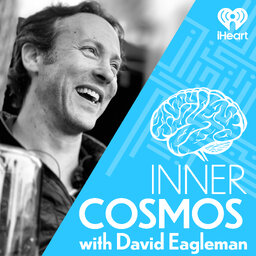Ep15 "What should happen when someone with a brain tumor breaks the law?"
When does neuroscience overlap with the legal system? Do we have free will or don't we? Did changes in Charles Whitman's brain have something to do with him becoming a mass shooter? Why was the heir to the Gucci fashion fortune killed by his wife? Join Eagleman on a wild journey to understand what happens when the study of the brain and the law end up in the same courtroom.
 Inner Cosmos with David Eagleman
Inner Cosmos with David Eagleman


